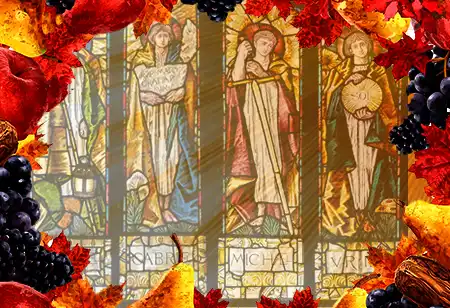October- Death Café
 Join others for the first meeting of the Death Café.
Join others for the first meeting of the Death Café.
Tuesday 4th November 2.00 to 3.30pm at The Barn, Woolacombe.
This October marks a sad anniversary for me. It was a year ago that my beloved husband unexpectedly died.
Forgive me my indulgence in sharing this with you, but over this year as I have struggled to learn to live a new life, I have been reflecting on the difficult subject of death itself.
A couple of months after Les died, I was kindly invited to a function and was introduced by a well-meaning soul as ‘Susan who has just lost her husband.’
Susan, who has lost her husband. How very careless I thought! I haven’t lost him; he hasn’t travelled somewhere without telling me, passed away, departed, fallen asleep or any of the euphemisms we use to try to soften the subject of death. He has simply died. He is dead, and at times it has been agony.
As a widow, I am no different to any other bereaved partner. There are so many of you who will know the agony of separation from someone hugely significant to you and it doesn’t have to be a spouse. Yet, as a Christian minister who cannot hide away from death, who is called to speak hope into its finality, I increasingly feel that a conversation needs to be opened about our fears, our curiosity, our discomfort and our awkwardness with even saying the word – death.
As the autumn continues with increasingly shorter days and the prospect of winter ahead; as we turn once again to the festivals surrounding death – Halloween, All Souls, All Saints, and of course, Remembrance, it seems to be a good time to meet together to listen, to discuss and if it is appropriate, to share our thoughts and feelings about an incredibly important subject.
September - Mellow Fruitfulness
 The windows at St Mary’s Church in Mortehoe, showing four of the archangels, Michael, Gabriel, Raphael and Uriel.
The windows at St Mary’s Church in Mortehoe, showing four of the archangels, Michael, Gabriel, Raphael and Uriel.
During September, as the main tourist season ends and children return to school, we begin the transition from summer to autumn - a time of beginnings and endings.
This year, following an amazing summer, fruit trees are heavily laden with a bumper crop of fruit. Blackberries are plentiful and clusters of tomatoes are ready to harvest.
At the end of September, the church recognises the feast of St. Michael and All Angels, a Christian feast day celebrated on September 29th. Traditionally, it marked the end of the harvest season, although modern agricultural harvests continue well into the autumn. The date falls near the autumnal equinox, marking the shift from summer to autumn and the shortening of days.
August – Pondering Time.
 Recently, I have been looking back at old photographs...
Recently, I have been looking back at old photographs...
During August we are offered a time to step back from the frenetic activity of the rest of the year, (that is unless you are part of the wonderful work force who serve the hospitality industry, directly or indirectly), and take leave. Thinking about this, I am aware of how quickly the year is passing.
Recently, I have been looking back at old photographs. Each is a moment of time captured and held for me to look at, which transports me to that place, that person and that moment.
Time is a concept so fundamental, so omnipresent, and yet so elusive that it has captured the fascination of philosophers, scientists, poets, and dreamers for millennia. It is the silent current that carries us from birth to death, the invisible architect shaping the contours of our lives, the mysterious dimension in which change becomes possible.
It is referred to as one of the constants in life with its ruthless march of seconds, hours and days stretching into unchangeable regularity; the sun rises and sets; seasons change; we live and we die.
July – Trinity
 The Trinity Knot, representing The Father, The Son and The Holy Spirit.
The Trinity Knot, representing The Father, The Son and The Holy Spirit.
This month the Church has entered the season of Trinity as we enjoy the summer and the beginning of the school holidays. Following the festivals of Christmas, Easter and Pentecost we have moved once again into ordinary time.
The Trinitarian aspect of God is a very interesting concept, which is equally fascinating and hard to grasp. It is one of the key doctrines, or taught principles of the Christian faith. In essence it is believed that God, though a single infinite entity, existing in eternity is expressed in three co-equal, distinct ways or Persons who are infinitely all one nature. Each of them is God, but they are known and have a distinct role in God’s work in the world.
It took some wrangling – of trying to work out how to even define the idea throughout the third century, before it was finally adopted after years of debate in the First Council of Constantinople in 381AD.
There have been many simplistic ways to try to explain the concept of a Trinitarian God. St Patrick used a shamrock to try to explain that the three parts are the same leaf, although separately three areas of the leaf.
Water, H20, becomes solid when it freezes and becomes vapour when heated to boiling point, but remains made of the same elements.
June - Pentecost
 ...tongues of fire, enabling them to move out from Jerusalem into the world to share the Good News of Jesus Christ.
...tongues of fire, enabling them to move out from Jerusalem into the world to share the Good News of Jesus Christ.
As you are reading this article, I wonder whether you have noticed that you are breathing. That without a thought, your lungs have just filled with air or emptied themselves as you exhaled. Or perhaps like me, you don’t even consider breathing – that is, until you choose to walk at pace up a particularly steep hill!
Breathing really is the most remarkable process. It just happens through waking hours and when asleep, yet even if awake and despite air entering our lungs and being expelled as we breathe out, we are unable to see the invisible gas that we are totally dependent on for life. It is for me one of the remarkable aspects of our amazing bodies.
All living things on earth including humans, use oxygen from the atmosphere to stay alive, yet to breathe 100% oxygen wouldn’t do us much good at all and I dare say that there will be some of you who never take breathing for granted. I think of asthmatics or anyone with a condition that compromises their breathing. It can literally be a life-or-death situation to struggle to breathe.

